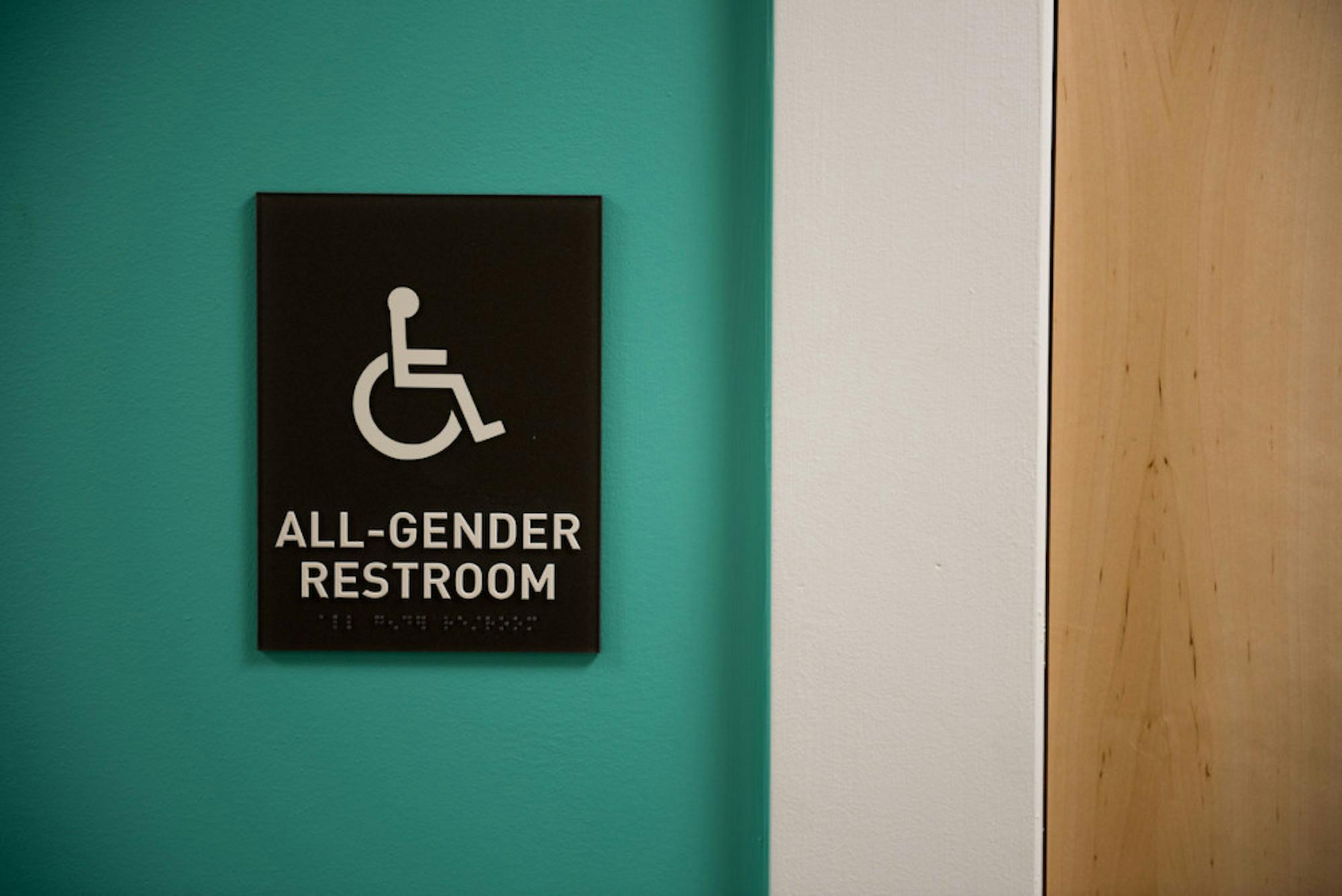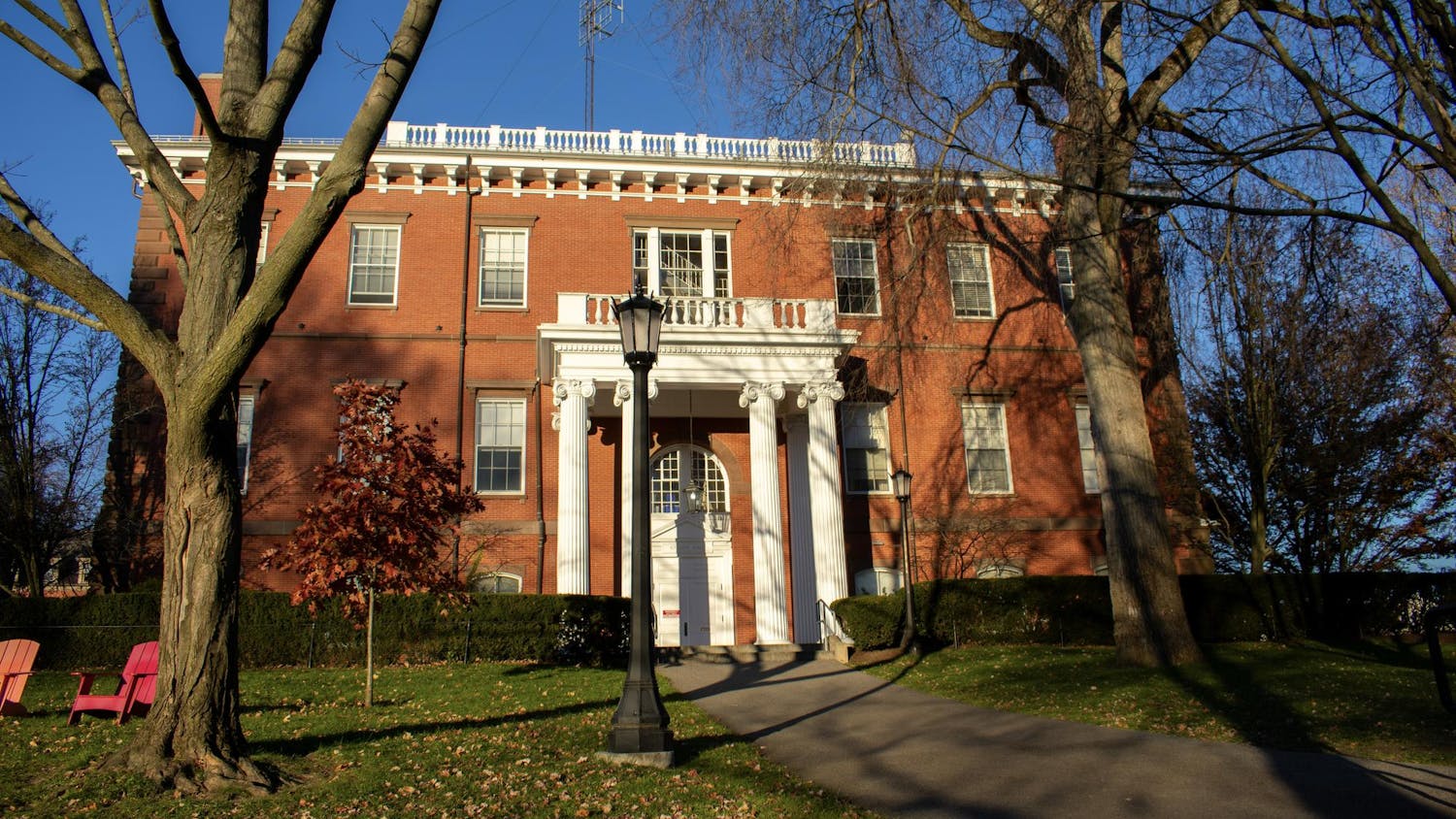Chief Diversity Officer Mark Brimhall-Vargas and LGBT Center Director Nino Testa are creating a new campus committee to discuss all-gender bathrooms, according to Jill Zellmer, director of the Office of Equal Opportunity. Zellmer told the Daily in an email that she will also serve on the committee, which will largely focus on the Medford/Somervile campus.
"The restrooms and facilities that we have on campus now are not really equitable in terms of who has access to them across campus," Testa said.
Testa said that the LGBT Center has worked to expand access to more suitable restroom options on campus for all Tufts community members, such as by changing historically gendered signs on single-occupancy restrooms into all-gender restrooms.
According to Testa, not every Tufts building has an all-gender restroom. He stressed the importance of ensuring that students know which buildings do have all-gender restrooms and added that a map with this information is available on the LGBT Center's website.
To accommodate more all-gender bathrooms on campus, existing bathrooms could be converted and additional bathrooms could be built based on the feasibility of each option, Dean of Student Affairs Mary Pat McMahon told the Daily in an email.
Efforts to create more all-gender and single-occupancy bathrooms on campus continue, Testa said. He noted that in Dowling Hall, one of two single-occupancy staff bathrooms was recently changed to an all-gender bathroom for any member of the Tufts community or guests to use.
"So many visitors use that building," Testa said. "That's a high-need building."
According to Testa, the next high-need building is the Mayer Campus Center, which does not currently have any all-gender bathrooms.
Testa said that facilities and university administrators are mindful of including all-gender bathrooms when constructing new buildings.
According to Zellmer, having all-gender bathrooms was a consideration when building 574 Boston Avenue.
"It has standard bathrooms with multiple stalls available to all genders and has clear signage that makes that apparent to the building's occupants and visitors," Zellmer wrote.
Additional all-gender bathrooms would likely be single-occupancy, due to the discomfort that students have with the level of privacy in multiple-occupancy bathrooms, Testa said.
"I would love to see more multiple-occupancy all-gender restroom options on campus," he said. "But if we were to do that ... those bathrooms would need to be constructed differently."
Testa envisions multiple-occupancy bathrooms with stalls that are completely enclosed from floor to ceiling and a possible communal sink space outside of the private bathrooms.
Zellmer expressed pride over the all-gender bathroom on the third floor of Ballou Hall because of the significance in creating change at the upmost level of an organization.
"Many buildings on the Medford campus are older, making it difficult and, in some cases, impossible to convert some bathrooms, although we strive to do so when possible, such as in Ballou [Hall]," Zellmer wrote.
Brimhall-Vargas emphasized the importance of inclusivity at all levels of the university.
"In general, we want to do whatever we can to make sure that trans-identified faculty, staff, and students have full and equitable access to our university," Brimhall-Vargas wrote.
The university's addition of all-gender bathrooms on campus is keeping pace with similar changes being made in the public sphere. According to the Mass. Attorney General's Office, as of Oct. 1, Mass. Public Accommodations law prohibits spaces that accommodate the public from providing different or inferior service to individuals based on their gender identity. Additionally, wherever facilities are sex-segregated, like bathrooms, the law protects an individual's right to use the facility most consistent with their gender identity.
Two recent Tufts alumni, Renee' Vallejo (LA '16) and Andrew Núñez (LA '15), expressed their support for the creation of more all-gender restrooms on Tufts' campus.
"These efforts are entirely necessary and would in turn show changes in many other aspects of student life," Vallejo told the Daily in an email. "It is no myth that students who feel safer and are represented perform better socially and academically."
During their time at Tufts, Vallejo worked on projects with the LGBTQ community on campus, including creating more inclusive bathrooms.
"As an alum, I remain in touch with students and administrators and only hope for more progress," Vallejo wrote.
Núñez believes that the creation of more all-gender bathrooms at Tufts is important because the discussions at Tufts ought to reflect those happening across the United States.
"This is about students, faculty, staff [and] visitors feeling not only accepted... in their work environment [and] in their living environment," Núñez said. "It's really about being equitable and for Tufts to really put its resources into the plan that is already drafted."
Advocacy efforts increase for more all-gender bathrooms on campus






